
It was always going to be hard for 2011 to match the unprecedented amount of great and often excellent albums released in 2010, which was a landmark year for metal in general. Across all the sub genres, the metal world flexed its muscles as if to show that ten years after the Iron Maiden reunion that sparked the metal resurgence across the globe, the flag was still flying high, commercially and creatively. But what 2011 lacked in sheer numbers of releases, it more than made up for in just how many potential candidates there were for the number one spot in this list. In my experience, most years have ended with a clear standout album, one that so easily towered above the rest in my mind that the list seemed lopsided. But not this year, because each one of the albums in the top five of this year’s list could have legitimately claimed the number one spot. That’s saying something about just how fantastic the album in that spot is, and now to get right to the point, The Metal Pigeon’s Album of the Year belongs to:
 1. Symphony X – Iconoclast:
1. Symphony X – Iconoclast:
I wrote about the impact that this album had on me upon my first listen in an earlier blog piece, and well over half a year after initially hearing this record it still manages to get me to shake my head in disbelief at how much I really love this album. Now is not the time to be reserved about praise, this album is an absolute masterpiece, start to finish, and in all ways as close to a perfect album as you can get. This is a rarity for me, as I usually can find something to critique even in most of my albums of the year; a filler song here or there, a pointless intro track, a vocalization that sounds off, lame artwork, etc, etc. In Iconoclast, every note belongs where it is found, the transitions between the crunchy, gritty gut checking verses and soaring-so-high choruses aren’t forced – if a bridge is needed, you often find it becomes one of the defining features of the song. Some of the best moments in these songs are the little things, the one time transitions or outros that follow spectacular guitar solos or perhaps the third play through of the chorus – these are the musical gems that once discovered make you all too happy to sit through a six-minute song in order to hear that singular transcendent moment at the four-minute mark.
Russell Allen’s vocals are spectacular, he has the ability to quickly shift from a startlingly aggressive gritty delivery to a smooth, soaring, powerful vocal that often carries the rest of the band’s complex arrangements into the territory of raw human emotion. Sadness, melancholy, elation, and euphoria — a great progressive/power metal vocalist should be able to flex his instrument to convey them at the drop of a hat, regardless of the timbre of their voice. This is epic music and it requires a vocalist that goes for it, leave the irony and smirking at the door please. And regarding guitarist Michael Romeo, I don’t think I’ve ever heard a shredder who can so effortlessly spit out guitar riffs that sound so sharp and razor perfect that they threaten to slice up your face while listening, since the classic era of Megadeth via Dave Mustaine. Rapid flurries of notes are timed well, spaced out evenly, and countered by his innate sense of melodicism that he interjects not only in beautifully composed, epic guitar solos and passages, but also within the song structures as well. Throughout the album, he flares and flashes here and there before unleashing his technical abilities in a jaw dropping way, yet always knows when to exercise restraint and allow the rhythm section to carry the weight of the song. I’ll repeat my earlier claim, there isn’t a note wrong on this record, and it manages to top its predecessor, 2007’s Paradise Lost, which was already a spectacular album. If you are any kind of metal fan, you owe it to yourself to give this a few listens at the very least.
Album highlights: “The End of Innocence”, “Children of a Faceless God”, “When All is Lost” (the guitar solo at 6:27 is worth the price of admission)
 2. Nightwish – Imaginaerum:
2. Nightwish – Imaginaerum:
Most of the albums on this list were released many months ago, Nightwish’s Imaginaerum was released on November 30th. In just a few weeks it has managed to occupy most of my listening time for this entire month, as well as streak up to the second highest spot on this list. In the UK, Metal Hammer has awarded it with its own prestigious Album of the Year award, and no wonder: Its addictive, in a way that no Nightwish album has ever come close, perhaps due to the fact that its so intriguing. No other album in this band’s history is as schizophrenic, jarringly abrasive, prone to sudden mood swings and well, just flat out bonkers. At the center of this madness is the steadying hand and guiding vision of keyboardist and main songwriter Tuomas Holopainen. And he somehow manages to keep all the zaniness in check through his ever reliable abilities to craft oh-so-catchy tunes and heart stopping orchestral arrangements. The shining star however, is not-so-new anymore Nightwish vocalist, Anette Olzon, who gives the performance of her career with a barrage of shifting styles and vocalizations. On “Slow, Love, Slow” she’s a jazz chanteuse who conducts the band with a hint of slyness in her voice, while the subtle shift to the chorus shows her ability to bend emotional inflection into her delivery in a way she never did on past ballads like “Eva”. She duels with bassist and co-vocalist Marco Hietala’s bizarre, gruff, mental patient-like shouting vocals on the epic “Ghost River” by being the bright light of innocence to his incredibly dark, haunting performance. Of note on this track is the way that the children’s voice of the Young Musicians London choir eerily backs up Hietala in what has to be one of the strangest duets in music history. It works.
It all somehow manages to work, even jazz lounge Nightwish. On the much talked about “Scaretale”, Olzon disappears into the character of a loopy performer in a deranged, Tim Burton-esque circus, and her vocal darts quickly in and out of rapid phrases and dramatic musical shifts. Her ABBA-esque pure pop vocal background is given center stage to crest to euphoric heights on the “Last Ride of the Day”, which turns out to be most quintessentially Nightwish styled song on the album, recalling hints of the bands Oceanborn and Century Child albums. This band has always been a master of balladry in their own unique idiom, and they have penned their finest ever in “Turn Loose the Mermaids”, a song that evokes Loreena McKennitt-like celtic melancholy in which Olzon delivers what seems to be a paean about the acceptance of death. There is a fairly heady conceptual theme tying together all these songs (in part due to the film of the same name being released next year), in which a dying elderly man suffering from dementia begins to regress into childhood and relive moments of his life in dreams. Its not necessary to be aware of the concept to enjoy the album, though it does make the experience even richer. This is the heaviest, darkest, and greatest Nightwish album to date, and it raises the bar for this style of metal to unimaginable heights.
Album Highlights: “Ghost River”, “Turn Loose the Mermaids”, “Last Ride of the Day”, “Slow, Love, Slow”
 3. Taake – Noregs Vaapen:
3. Taake – Noregs Vaapen:
This one came out of nowhere, and quietly crept into my listening habits on repeat rotation before I really knew what was going on. When I did, I was surprised because Taake’s previous album (the self-titled Taake), while a good record, had done little in the way of really impressing me. On Noregs Vaapen, songwriter and vocalist Hoest injects a myriad of wildly different influences into his traditional Norwegian black metal style, in ways that are difficult to sum up in a single phrase. In “Du Ville Ville Vestland”, a barrage of standard tremolo riffs and blast beats is punctuated by nearly alternative rock flourishes, and breaks wide open at the 4:10 mark, into an amazingly catchy Def Leppard-arena-rock styled riff and matching drum beat, followed by what sounds like a twangy bass guitar handling the lead melody. Twangy bass guitar leads in a black metal song?! Its an awesome moment, the first of many. A banjo makes an appearance in “Myr” and fits in beyond belief, helping along a mid-song transition while sounding like some long lost Norse instrument. In the album opener, “Fra Vadested Til Vaandesmed”, the combination of layered guitars over a tremolo-picked rhythm work to create a hypnotic, frenzied, dance-like quality. Check out the loose, jazzy, Porcupine Tree-invoking midsection in “Orkan”, and also the album highlight in “Norbundet”, where Taake eschew slicing riffs for airy, spacey, strummed guitar figures. A slew of guest stars are spotted throughout the album, such as Darkthrone’s Nocturno Culto, Mayhem’s Attila, and Demonaz from Immortal — and while they’re contributions are noticeable, the vocals really take a backseat to the music and compositions here. This is an album that reveals its greatness when you allow it to wash over you. The amazing thing is that despite all its prog-rock deviations and non-black metal influences, it couldn’t be mistaken for anything other than a Norwegian black metal album. Its not quite black-n-roll, nor is it attempting to emulate any of the genre-bending reworkings of the black metal sound that are coming out of the United States and France. Here we have the most radical black metal album released in at least ten years, and its by an eighteen year old band from Bergen, Norway.
Album Highlights: “Norbundet”, “Fra Vadested Til Vaandesmed, “Du Ville Ville Vestland”
 4. Falconer – Armod:
4. Falconer – Armod:
I’m a recent convert to these guys. My eye opening experience with Symphony X’s Iconoclast spurred me to revisit many bands I had previously ignored or tried to like and failed. Falconer was the first of them to come back and slap me awake with a back catalog of albums that left me stunned and completely obsessed, to the same degree that I became permanently obsessed with other power metal greats such as Blind Guardian, Edguy/Avantasia, and others back in the day. It was fortunate then that this happened just before the release of Falconer’s seventh album Armod in June. This may be a power metal album, but its one of the most crushingly heavy albums released this year. If you aren’t aware of this band’s history, it is helpful to understand that their songwriter and guitarist Stefan Weinerhall’s previous musical project was the folk/black metal band Mithotyn. This explains Falconer’s tendency to rely upon heavy, crunchy guitar riffs over the sometimes more airy keyboard driven bands found in power metal. Not to forget the fact that “Griftefrid” is driven by relentless black metal blast beats (seriously), which makes for one of the most unusual power metal tracks I’ve ever heard.
In fact, guitar-wise, there is a great deal of music on this album that seems to be very influenced by the Gothenburg melodic death metal sound in the best possible way. Another interesting facet of this album is that the lyrics are all in Swedish, (something the band says will be a one off). Its a great experiment, because while a big part of the appeal of Falconer’s prior albums is the crystalline clear vocals of Mathias Blad and the often poetic qualities found within their English lyrics, his vocals are just as commanding and dramatic in Swedish. In fact the distinctively sharp nuances found within the language allows the songwriting to be far more complex and shifting than normal. Blad’s perfect theatrical baritone vocals are an odd duck in the power metal world, and based on opinions I’ve seen here and there, its a voice you either enjoy tremendously, or not at all. I find it refreshing, as his vocals possess a natural heaviness that lends gravity to both aggressive tracks and gentle ballads. To be sold on this album, all you need to do is listen to the first track, “Svarta Ankan”, which punches you right in the gut with harmonizing rhythm guitars, then folds in a beautiful vocal duet with Blad and his sister(!) Heléne Blad over softly plucked acoustic guitars — all followed by one of THE best guitar solos I’ve heard this year, a Brian May-esque doozy that leaves your jaw on the floor. But thats just the beginning, the entire album is fantastic, with doses of moments that make you rewind and have another listen.
Album Highlights: “Svarta Ankan”, “Herr Peder Och Hans Syster”, “Rosornas Grav”
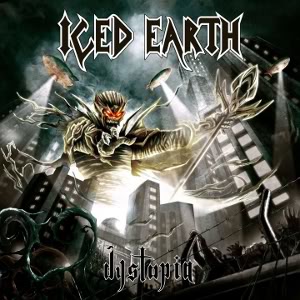 5. Iced Earth – Dystopia:
5. Iced Earth – Dystopia:
This was a make or break album for Iced Earth, and everyone including band leader Jon Schaffer knew it. For myself, the departure of Matt Barlow wasn’t exactly a surprise, and to be completely honest, not an unwelcome one either. Don’t get me wrong, I love Matt Barlow, but something was off on 2008’s Crucible of Man, in terms of Barlow and Schaffer’s ability to move in lock step. I guess its understandable, Barlow was absent from the band for nearly half a decade and missed a few records and tours, while Schaffer had grown used to writing for the more flinty edged vocals of Ripper Owens. When Barlow announced that this time he was gone for good, I think I along with many others figured that there would be no one able to come in and carry this band forward anymore, and that we’d be hearing a retirement announcement fairly soon. To the rescue comes ex-Into Eternity throat Stu Block, whose performance not only ushers in what is the greatest Iced Earth album since 1997’s Something Wicked This Way Comes, but lays down a significant challenge to Barlow’s legacy as the greatest Iced Earth vocalist. This album is grin inducing, bringing back a focus to pure and simple great metal songwriting that focuses on catchy melodies, anthemic choruses, and thundering, galloping riffs. Its not shackled like the last two albums by being conceptual and having to deliver a story, nor is it conscious of having to strive for sounding epic. Gone are the Blind Guardian-ripped off choirs in choruses that plagued the past couple records.
What you get is Schaffer’s most focused, and dammit, FUN to listen to album in well over a decade. I heard album opener “Dystopia” for the first time when I was driving home, and its heart pounding build up to a rousing, electrifying chorus filled me with a jolt of adrenaline to such a degree that after I finished headbanging along to it I realized I was twenty miles over the speed limit! Stu Block’s perfect blend of Barlow’s low baritone with Owens high pitched registers is honed into a vocal style that is really quite perfect for Iced Earth. I keep wondering what the past few records could have been like had he been at the vocal helm. What you’ll really remember about this record after giving it a few spins, however, is the quality of the songwriting. There’s some kind of undefinable ‘x factor’ at work here, as most of these songs hit my metal bone in such a way that it reminded me of how it used to feel when I was a teenager, just hearing a classic metal album for the first time and knowing that it changed the way I perceived music. I’m not saying this album is a classic, in fact, a few relatively weaker songs kept this from being any higher on this list, but it did succeed in renewing my faith in Schaffer and Iced Earth in general.
Album Highlights: “Dystopia”, “V”, “Dark City”, “End of Innocence”, “Iron Will”
 6. Edguy – The Age of the Joker:
6. Edguy – The Age of the Joker:
Here’s the thing with this album — its far better than 2008’s Tinnitus Sanctus, just as good as 2006’s Rocket Ride, yet not as great as 2004’s Hellfire Club or its classic predecessor, Mandrake. Why the chronology lesson? Because its important to see this album as a positive step in the right direction. Tinnitus Sanctus wasn’t a terrible album by any means (in fact it had one of the bands best songs ever in “Thorn Without a Rose”), but it was at best a grower, and at worst a mediocre release. Now that singer/songwriter Tobias Sammet is finished for the time being with his solo project Avantasia’s recent trilogy of albums (of which some fans suspect sucked up most of Sammet’s creative inspiration, leaving the aforementioned Tinnitus Sanctus a tad bereft), he was free to refocus his considerable talents on his day job. Its not an exaggeration to say that this album features some of Edguy’s strongest material to date, as well as their most adventurous. Take the oddly country western influenced “Pandora’s Box”, where strange twang infused verses soon unload into one of Sammet’s most glorious choruses, a panoramic vocal cascade that recalls the dreamy eyed days of the Mandrake era. The celtic melodies that lace together “Rock of Cashel” are pure ear candy, and they open into an abrupt, startling medieval sounding solo section midway through that showcases Jens Ludwig’s natural fluidity as a guitarist.
I’ve long become accustomed to the fact that along with a batch of absolutely die hard Tobias Sammet fans, I’m a rarity in that I tend to love any ballad written by the guy. Look, either you like metal bands doing ballads or you don’t, but Sammet is one of metal’s shooting stars when it comes to crafting them, and he may have scored one of his best in “Every Night Without You”. Softly strummed acoustic guitars, minimal keyboard orchestrations, and Sammet’s rough edged melodic vocals set up the framework, and the excellent backing vocals of Oliver Hartmann and Cloudy Yang raise the epic chorus to absolute euphoric heights. Towards the end of the song, as if in a subtle nod to their pure power metal past of albums like Vain Glory Opera and Theater of Salvation, triumphant horns blare out to punctuate the bridge before the Slash-esque guitar solo. Another gem is “Fire on the Downline”, with its slow burning verses that flare into a melodic refrain that is again wonderfully supported by the talented backing vocal choir that Sammet seems so adept at utilizing lately. This is an album that I had every anticipation of being in my top five of the year, but it faced some seriously stellar competition, and there is some stuff on here I consider average to even filler for Edguy. Overall however, its a quality album, from which I have culled several of my all-time favorite Edguy songs. I just hope that its the first step on the path back towards greatness that so defined Edguy in their classic era. Iced Earth did it, now its your turn Mr. Sammet.
Album Highlights: “Rock of Cashel”, “Breathe”, “Every Night Without You”, “Fire on the Downline”
 7. Týr – The Lay Of Thrym:
7. Týr – The Lay Of Thrym:
I’ll keep this fairly simple and to the point. Týr make consistently great albums, and if you haven’t treated yourself to any of them by this point you really need to rectify that mistake. They’re an unusual force within metal in that they’re not quite folk or power metal, but a mix of both while simultaneously sounding like an old fashioned heavy metal band at the same time. Nicely crunchy riffs follow the path drawn out by Scandinavian folk musicality, yet they manage to avoid sounding like the soundtrack to some bad renaissance fair, unlike a few bands tagged with the folk label that I can think of. This is undeniably heavy music, yet its written by a band with an ear for beautiful melody and in particular effective vocal harmonization. These guys all have excellent voices that are able to work in unison with each other to provide complementary tones to create a vocal tone that is inimitable. Listen to a stunning example of this in “Fields of the Fallen”, in which the multitude of vocals are delivered in perfect sequences where the pauses between phrases are interjected by a quick and catchy guitar figure. The soft/heavy ballad “Evening Star” is the greatest song Metallica never wrote, a slow tension building crescendo to a roaring, double bass kick pounding chorus with one of the best couplets they have ever penned: “When home is far behind, and ever the long roads wind/ I keep your memory in my mind, one day I’ll repay in kind”. They treat the Dehumanizer era Sabbath classic “I” with all the extra heaviness that song has always been begging for, Heri Joensen’s distinctive vocals giving the song an urgency that Dio’s rendition never had. This might be their most complete album yet; it displays a maturity and renewed faith in basic metal tenets. While that scales back their traditionally folk based sound as a result, it has served to tighten up the aggression in their sound and sharpen their songwriting.
Album Highlights: “Fields of the Fallen”, “Evening Star”, “I”, “Flames Of The Free”
 8. Burzum – Fallen:
8. Burzum – Fallen:
You have to hand it to him, Varg Vikernes has proven a lot of doubters (myself included) wrong about his ability to pick up where he left off in terms of pre-incarceration Burzum. He made a great album in last year’s Belus, a sort of reintroduction to his classic Burzum sound with a few new styles thrown in. But Fallen is so much better, in part because he goes into full on experimental mode here, utilizing clean vocals in a way that he never has. That may sound a bit off putting considering this is Vikernes, not Bruce Dickinson, but believe me it actually works well. His clean, melodic singing is eerily spooky, and he manages to weave it into his songs not as a layer over the top, but as an integral part of the song structure. No better example of this exists then in the excellent “Jeg Faller”, in which he hums you into the chorus before quietly delivering the hook. Hypnotic riffs have always been a Burzum trademark, and there are a plethora on display here. Some of the best reside in “Valen”, which is also notable for having some of the most melodic guitar tones ever to be found on any Burzum release. This is by far the most musical work he has ever done, relying more on tunefulness than sheer bleak riffage (plenty of that too though). Its a compelling listen, and one that you will keep coming back to. Over time you might realize, like I have, that when you’re in the mood for some Burzum, you put this record on first.
Album Highlights: “Jeg Faller”, “Valen”, “Budstikken”
 9. Absu – Abzu:
9. Absu – Abzu:
This has quietly been a really good year for black metal, not only when considering releases by Taake and Burzum, but others such as Ravencult’s Morbid Blood (who narrowly missed this list). Absu’s strangely titled Abzu is yet another addition to that list, and it far surpasses their 2009 “comeback” album Absu (are these guys purposefully getting a little lazy in the title department?). This is to me the true follow up to their classic record Tara. Abzu is a short yet brutal 36 minutes of black thrash that is inspired in all aspects. Proscriptor’s always jaw dropping drumming is on full barrage mode here, but its the wild, seemingly out of control guitars and their slightly melodic bends and twists layered over beds of hypnotic rhythms that are the real attention grabber. The vocals are the same excellent, raw, tortured shrieks of agony that Proscriptor always delivers, his natural rasp complimenting the tone of the music perfectly. At times, this does sound more pure thrash than anything, yet its his vocal style that keeps Absu weighing anchor in black metal territory. There are two new members in the band here, the guitarist Vis Crom and bassist Ezezu, and they get the credits for writing the music here (Proscriptor handles the lyrics). In Vis Crom particularly, Proscriptor seems to have finally found a worthy songwriting talent to replace the gaping void left by Shaftiel. How he manages to keep unearthing this kind of talent out of nowhere is anyone’s guess. If you were left feeling empty after the last album, this one will fill you up.
Album Highlights: “Circles of the Oath”, “Abraxas Connexus”, “”Skrying in the Spirit Vision”
 10. Ghost Brigade – Until Fear No Longer Defines Us:
10. Ghost Brigade – Until Fear No Longer Defines Us:
I had not known about Ghost Brigade until shortly after the release of this album, when word of mouth led me to check it out with no idea of what to expect at all. Its a pleasant surprise; a mix of Finnish depression rock ala countrymen Sentenced and Amorphis, Opeth-like sections of iceberg shaped walls of sound, and an alternating mix of good throaty death growls and clean vocals that evoke a cross between Orphaned Land’s Kobi Farhi and Evergrey’s Tom Englund. If most of the above mentioned bands put you off, then you might be naturally wary of this stuff, as its pretty much right up that alley. But don’t dismiss this without giving it a shot, its bound to surprise with the amount of heaviness it contains within its smartly written, complex song structures. There are poppy elements to be found here, and that’s not something to be dismissed as a negative trait. If the song “Chamber”, with its spacey, guitar plucked intro and surging chorus doesn’t manage to stick in your head, then it sucks to be you. If you’re already intrigued however, then you’d be hard pressed to ignore what is one of the best albums in this style to be released since Sentenced’s elegant swan song, The Funeral Album.
Album Highlights: “Chamber”, “Grain”, “In the Woods”, “Clawmaster”


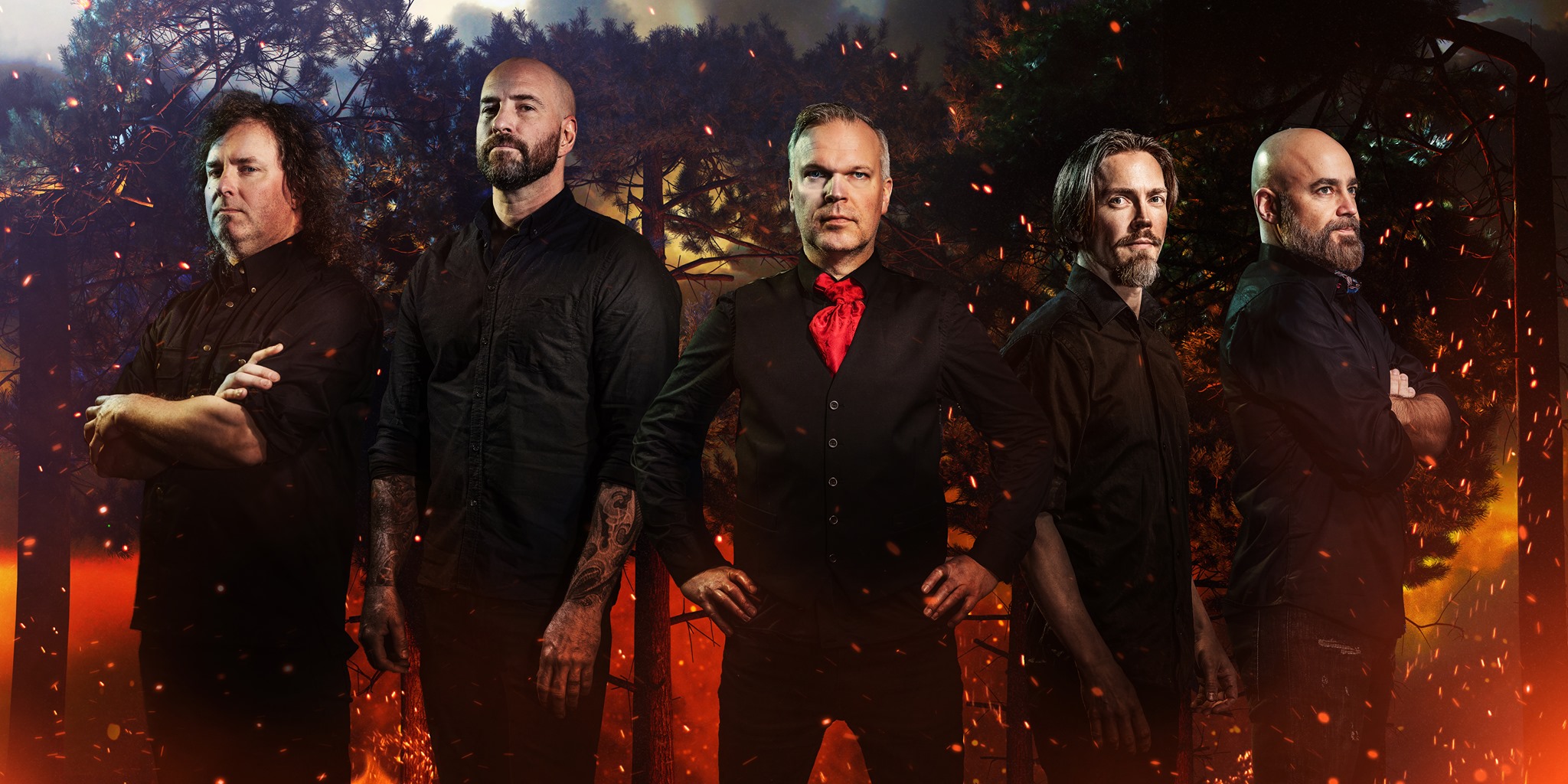

 If you’ve been needing something to be thankful for lately, here’s something: Stefan Weinerhall, guitarist/songwriter of power metal’s mighty Falconer is still writing and recording music. I only bring this up because it appears that this was in doubt for quite a long period of time following the release of the band’s last album, 2011’s Armod. For a short while, all we had to go on in terms of evidence that points to this was Weinerhall’s own cryptically worded message in the latest press release announcing their new album, in which he stated, “After an eight-month complete break from music on the verge of quitting it, I finally returned with a feeling of hunger, power and commitment to the songwriting.” But in a recent
If you’ve been needing something to be thankful for lately, here’s something: Stefan Weinerhall, guitarist/songwriter of power metal’s mighty Falconer is still writing and recording music. I only bring this up because it appears that this was in doubt for quite a long period of time following the release of the band’s last album, 2011’s Armod. For a short while, all we had to go on in terms of evidence that points to this was Weinerhall’s own cryptically worded message in the latest press release announcing their new album, in which he stated, “After an eight-month complete break from music on the verge of quitting it, I finally returned with a feeling of hunger, power and commitment to the songwriting.” But in a recent 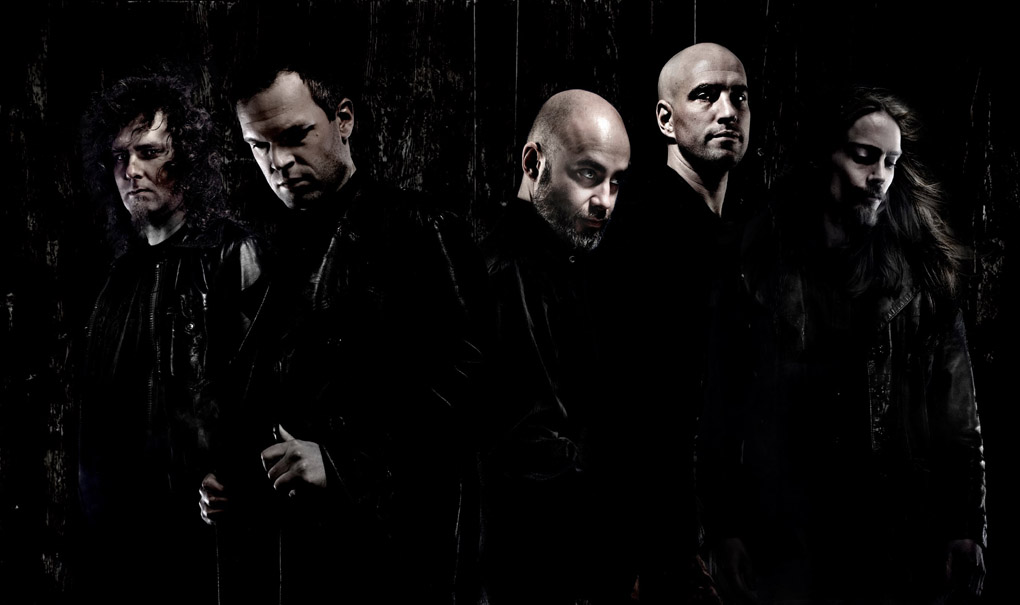


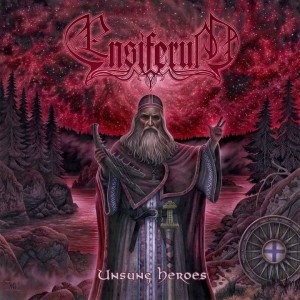 Ensiferum – Unsung Heroes:
Ensiferum – Unsung Heroes: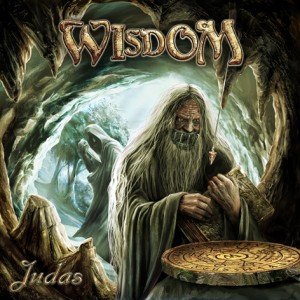 Wisdom – Judas:
Wisdom – Judas:
 Sabaton – Carolus Rex:
Sabaton – Carolus Rex: Sonata Arctica – Stones Grow Her Name:
Sonata Arctica – Stones Grow Her Name: Kreator – Phantom Antichrist:
Kreator – Phantom Antichrist: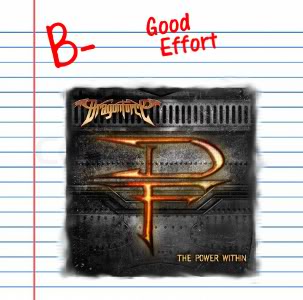 Dragonforce – The Power Within:
Dragonforce – The Power Within: Grand Magus – The Hunt:
Grand Magus – The Hunt: Burzum – Umskiptar:
Burzum – Umskiptar:
 2. Nightwish – Imaginaerum:
2. Nightwish – Imaginaerum: 3. Taake – Noregs Vaapen:
3. Taake – Noregs Vaapen: 4. Falconer – Armod:
4. Falconer – Armod: 5. Iced Earth – Dystopia:
5. Iced Earth – Dystopia: 6. Edguy – The Age of the Joker:
6. Edguy – The Age of the Joker: 7. Týr – The Lay Of Thrym:
7. Týr – The Lay Of Thrym: 8. Burzum – Fallen:
8. Burzum – Fallen: 9. Absu – Abzu:
9. Absu – Abzu: 10. Ghost Brigade – Until Fear No Longer Defines Us:
10. Ghost Brigade – Until Fear No Longer Defines Us: